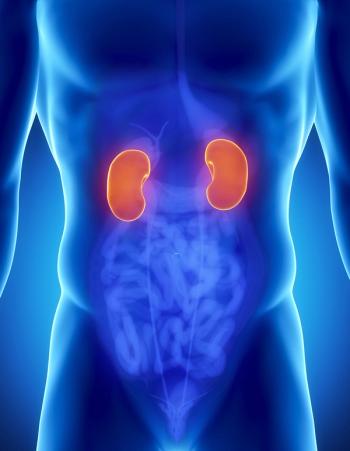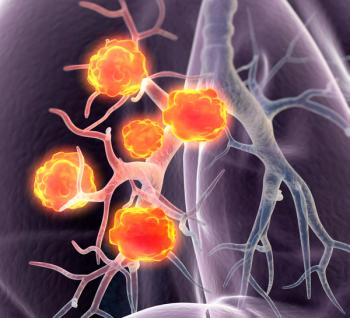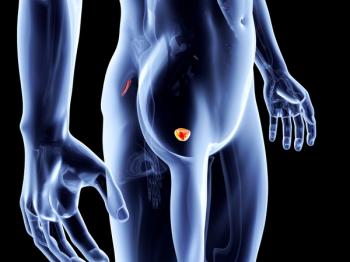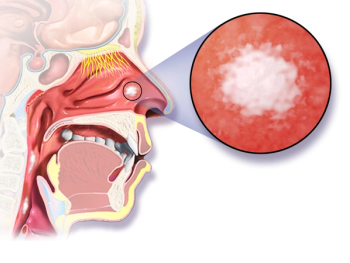
The primary end point of progression-free survival was met in the phase 3 COSMIC-313 trial which investigated cabozantinib, nivolumab, and ipilimumab in previously untreated, advanced intermediate- or poor-risk renal cell carcinoma.

Your AI-Trained Oncology Knowledge Connection!


Ariana Pelosci, managing editor for CancerNetwork® and the journal ONCOLOGY®, has been with the team since June 2021. She specializes in both web and print, and runs the social media accounts for CancerNetwork®.
She graduated from the University of Delaware, where she studied Media Communications and minored in journalism and marketing. At heart, she is a Jersey girl, and you can always find her down the shore during her free time.
Ariana loves to read, specifically historical or contemporary fiction. Follow Ariana on Twitter @APelosci or email her at apelosci@mjhlifesciences.com.

The primary end point of progression-free survival was met in the phase 3 COSMIC-313 trial which investigated cabozantinib, nivolumab, and ipilimumab in previously untreated, advanced intermediate- or poor-risk renal cell carcinoma.

Results from the phase 2 APPROVE trial showed apatinib plus pegylated liposomal doxorubicin improved efficacy and safety compared with pegylated liposomal doxorubicin alone for patients with platinum-resistant recurrent ovarian cancer.

Patients with low-risk locoregionally advanced nasopharyngeal carcinoma who received 2 cycles of concurrent cisplatin plus intensity-modulated radiotherapy compared with 3 cycles had better survival and manageable toxicities.

Those with non–small cell lung cancer who had increasing tumor mutational burden appeared to experience better inflammatory T-cell–mediated responses compared with those who had low tumor mutational burden.

The phase 2 CTMX-2009-002 trial met its primary end point of confirmed objective response greater than 10% for patients with hormone receptor–positive, HER2–non-amplified breast cancer being treated with praluzatamab ravtansine.

Black adolescent young adult patients with acute myeloid leukemia appeared to have inferior outcomes compared with White patients.

The phase 3 RATIONALE 306 trial showed improved overall survival for patients receiving tislelizumab plus chemotherapy vs placebo and chemotherapy for unresectable, locally advanced or metastatic esophageal squamous cell carcinoma regardless of PD-L1 status.

Results from the phase 3 AEGEAN trial showed an improved pathological complete response in patients with resectable non–small cell lung cancer treated with durvalumab plus neoadjuvant chemotherapy vs chemotherapy alone.

Steven J. Chmura, MD, PhD, discussed recent findings from the phase 2R/3 NRG-BR002 trial in patients with newly diagnosed oligometastatic breast cancer.

Metastatic castration-resistant prostate cancer tumors can be classified as luminal and basal, possibly allowing for a better precision medicine approach to treatment.

Patients with p53-mutated non–small cell lung cancer who were given ALRN-6924 completed more cycles of treatment with chemotherapy vs the placebo arm.

Fast track designation was granted to PDS0101 plus pembrolizumab, which is currently being assessed in the phase 2 VERSATILE study in patients with recurrent or metastatic human papillomavirus 16–positive head and neck cancer.

The Committee for Medicinal Products for Human Use of the European Medicines Agency has recommended for approval trastuzumab deruxtecan for patients with unresectable or metastatic HER2-positive breast cancer.

Results from the phase 2 HERIZON study identified improved overall survival for patients treated with IMU-131 plus standard of care vs standard of care alone in advanced or metastatic gastric or gastroesophageal junction cancer.

A recent study found patients with hepatoblastoma who had small cell undifferentiated histology did not have worse outcomes than those who did not.

A system review and meta-analysis found that the use of radiofrequency ablation for low-risk metastatic papillary microcarcinomas of the thyroid was safe and effective.

Based on results from the phase 3 TRANSFORM trial, the FDA has approved lisocabtagene maraleucel for the second-line treatment of relapsed/refractory large B-cell lymphoma.

Patients with high-risk prostate cancer appeared to derive benefit from androgen deprivation therapy given for a minimal duration of over 18 months plus external beam radiotherapy.

Patients with metastatic cancer had improved health-related quality of life, physical function, and symptom control at 3 months when a weekly electronic patient reported outcomes survey was used.

Based on results from the phase 2 GEOMETRY mono-1 trial, the European Commission has approved capmatinib for patients with non–small cell lung cancer who have MET exon 14 skipping mutations, and a need for systemic therapy following prior treatment with immunotherapy and/or platinum-based chemotherapy.

Results from the phase 3 AENA trial led to the United Kingdom’s Medicine and Healthcare products Regulatory Agency accepting a marketing authorization application for aumolertinib for review in patients with locally advanced or metastatic non–small cell lung cancer with activating EGFR mutations, and those with locally advanced or metastatic EGFR T790M mutation–positive non–small cell lung cancer.

Results from the WSG-ADAPT-HER2+/HR- study showed promising survival rates with pathological complete response when patients with HER2-positive, hormone receptor-negative early breast cancer were treated with a de-escalated dose of trastuzumab plus pertuzumab without or without paclitaxel over a 12-week period.

Nutritional markers such as body mass index, weight loss, and albumin should be assessed to identify pre-operative malnutrition in patients with gynecologic cancers.

The 3-year follow-up update from the phase 2 ZUMA-2 trial showed continued responses for patients with relapsed/refractory mantle cell lymphoma treated with brexucabtagene autoleucel.

Independent factors such as the integrated clinical radiomics model and 18F-FDG PET/CT radiomics signature may be predictive of progression-free survival in breast cancer.

Despite women with multiple myeloma being more likely to have certain cytogenetic risk factors vs men, sex did not appear to impact efficacy.

Based on results of the phase 3 KEYNOTE-091/PEARLS trial, the FDA has accepted a supplemental biologics license application for pembrolizumab for patients with stage IB, II, or IIIA non–small cell lung cancer after a complete resection.

Based on results of the phase 3 RATIONALE-309 trial, the China National Medical Products Administration has approved tislelizumab plus chemotherapy for the first-line treatment of recurrent or metastatic nasopharyngeal cancer.

An expansion cohort from the phase 2 EPCORE NHL-1 trial demonstrated strong efficacy of epcoritamab in patients with relapsed/refractory large B-cell lymphoma.

FoundationOne CDx has been approved by the FDA as a companion diagnostic for entrecitinib for the treatment of ROS1 fusion–positive non–small cell cancer or NTRK fusion–positive solid cancers.